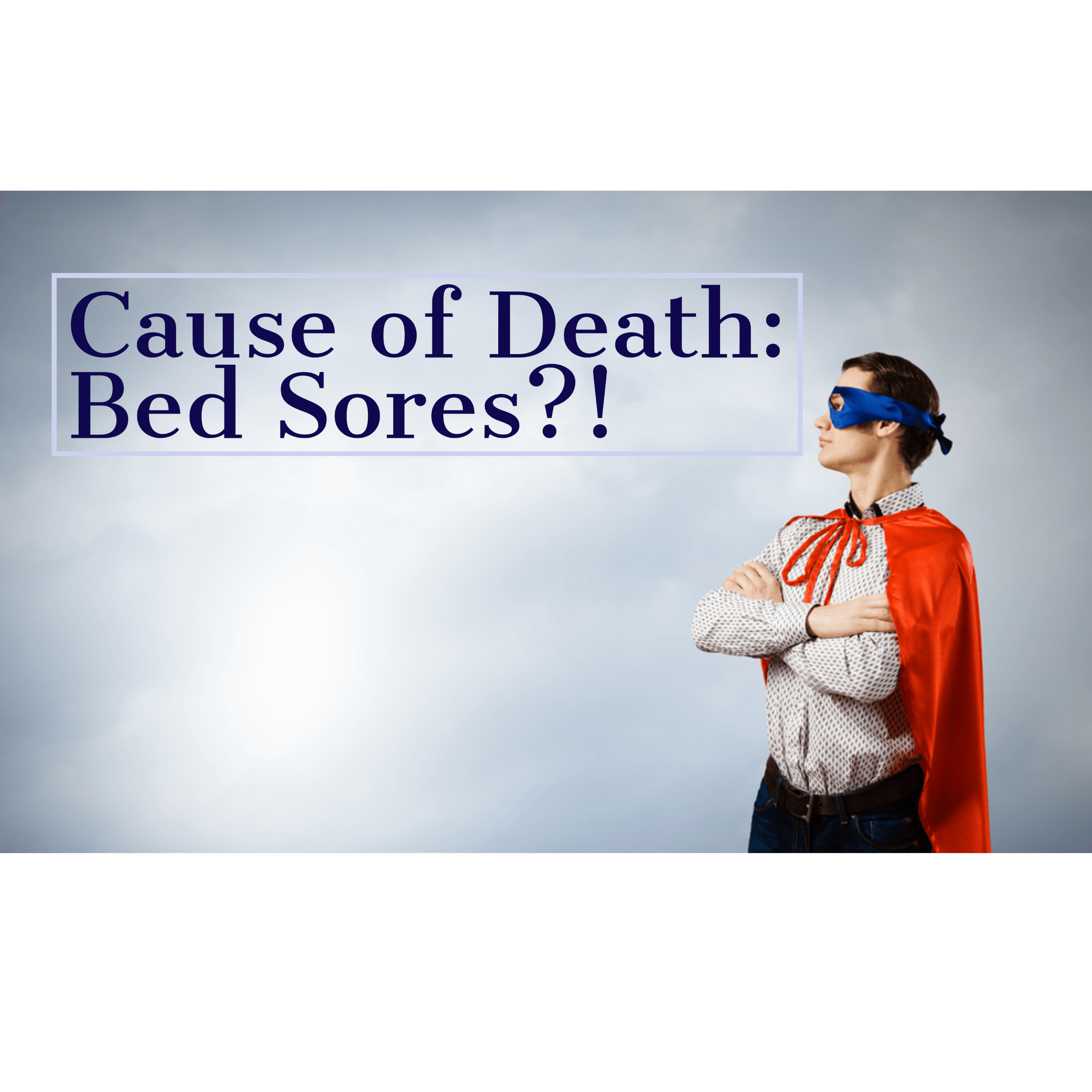Avoidable Pressure Injuries

According to Janette Bisbee, education/project manager for pressure injury prevention at The Hospital and Healthsystem Association of Pennsylvania’s Hospital Improvement Innovation Network, more than 2.5 million Americans a year suffer from pressure injuries and 60,000 die from them. Yep, you read that correctly – 60,000 people a year die from pressure injuries.
Perhaps the most famous person to die from a pressure injury is Christopher Reeve, aka Superman, a role he played in four movies. It is hard to wrap your head around the fact that a pressure injury killed Superman. At the time, he was on a ventilator, was a quadriplegic, and had the best care his Superman-money could buy, but still, he died of a pressure wound. Tragic and ironic.
Patients, like Christopher Reeve, get pressure injuries – bedsores, pressure ulcers and pressure sores are other common (though incorrect) names for this injury - primarily from bad healthcare.
According to the Cleveland Clinic, pressure injuries are “an area of injured skin” caused by:
- Pressure – remaining in the same position for a prolonged period of time results in pressure on the skin.
- Shear – repositioning a patient by moving the head of the bed up can cause the patient to slip down. The skin sticks to the sheets and causes skin damage.
- Moisture – Fluids such as urine, sweat, or fecal matter that remain on (as in were never cleaned off of) the patient’s skin cause the skin to become overly wet. This moisture increases the risk of a pressure injury.
Common occurrences in intensive care units, pressure injuries:
- Cause pain and suffering
- Reduce the quality of life
- Prolong hospital stays
- Add to the expense of a hospital stay for the patient
- Are expensive for hospitals to treat
- Can result in death
For patients who are extremely ill or at the end of their lives, pressure injuries may be the result of multisystem organ failure. In such cases, they may be unavoidable.
However, “most pressure injuries are avoidable.” In other words, a patient who isn’t already near death should NEVER have to experience one. In fact, pressure injuries are considered Never Events and should never happen - not to 2.5 million Americans each year, not to Superman, and not to you or a loved one.
The Healthsystem Association of Pennsylvania (“HAP”) has worked to combine research and practice to prevent pressure injuries. They have “developed and shared resources, tools, and materials to enhance pressure injury prevention efforts.”
Eliminating avoidable pressure injuries requires a multifaceted approach by hospital administration and healthcare providers, but it is possible. Here is a summary of HAP’s findings:
Attitude – A change in attitude by healthcare workers is needed to improve patient care
To start, healthcare workers must make a conscious commitment to eliminate “avoidable hospital-acquired pressure injuries.” Shifting the culture so that the “best care possible” for patients is synonymous with no injuries of this type is critical. Hospital administrators can use data to identify causes of pressure injuries and to track the impact of targeted interventions.
Personnel – A shifting of responsibility is needed to increase patient care
Every health care provider connected to a patient must work together, rather than assigning the burden of responsibility to one nurse. This team approach leads to more effective care of the patient. Furthermore, hospitals should hire a “certified wound care nurse” who can offer experience and support, as well as handle more complicated wounds.
Education – A decrease in pressure injuries will occur as healthcare workers increase their education and knowledge about these avoidable patient injuries
“Educate, and then educate some more.” Hospitals need to provide training that enhances skills. Health care providers should be competent in wound assessment, prevention, and treatment skills. In addition to hands-on skills, hospitals should also provide staff education on documentation and family education about pressure injuries.
Pressure injuries should never be something that a patient has to endure, especially now that it is clear that there are ways to prevent them. Hospitals have a responsibility to take measures so that these injuries are not part of the patient experience.
If you or someone you love has suffered from an avoidable pressure injury, The Eisen Law Firm can help. Call our experienced Cleveland malpractice lawyers to discuss your options for legal recourse and for obtaining the compensation you deserve. To schedule your free consultation, call 216-687-0900 or contact us online today.
Source: Pressure Injuries in the Healthcare Setting: Even Superman is Not Immune




